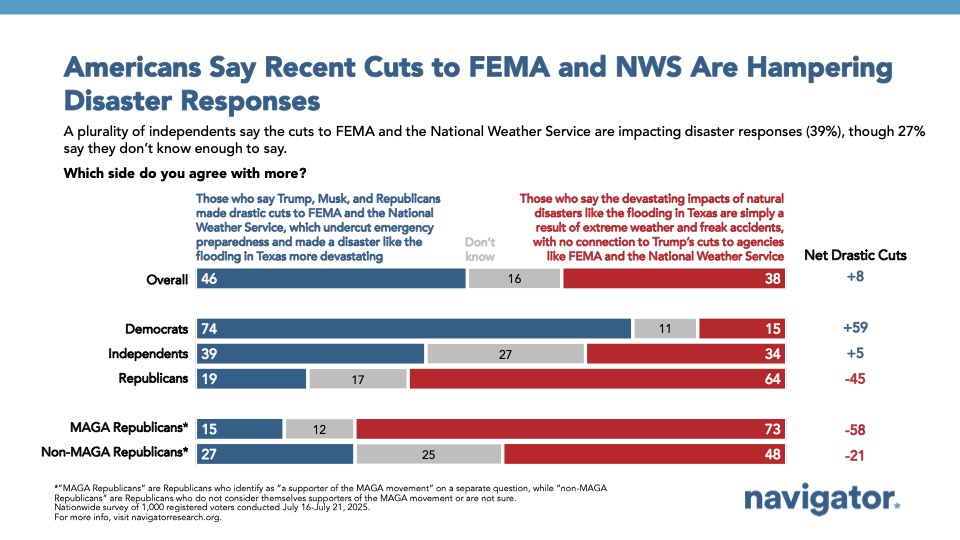Poll: Climate Change
This Navigator Research report covers Americans’ perceptions of extreme weather, including Americans’ concerns on climate change and how they believe this year’s weather compares to that of past years.
While partisanship primarily shapes the perception of climate change, experiences of heat, floods, and disaster fallout are creating new realities in the climate divide — especially among independents and younger Americans.
Extreme heat and flooding define 2025’s climate experience
Three quarters (73 percent) of Americans are concerned about extreme weather, including 39 percent who say they are very concerned.
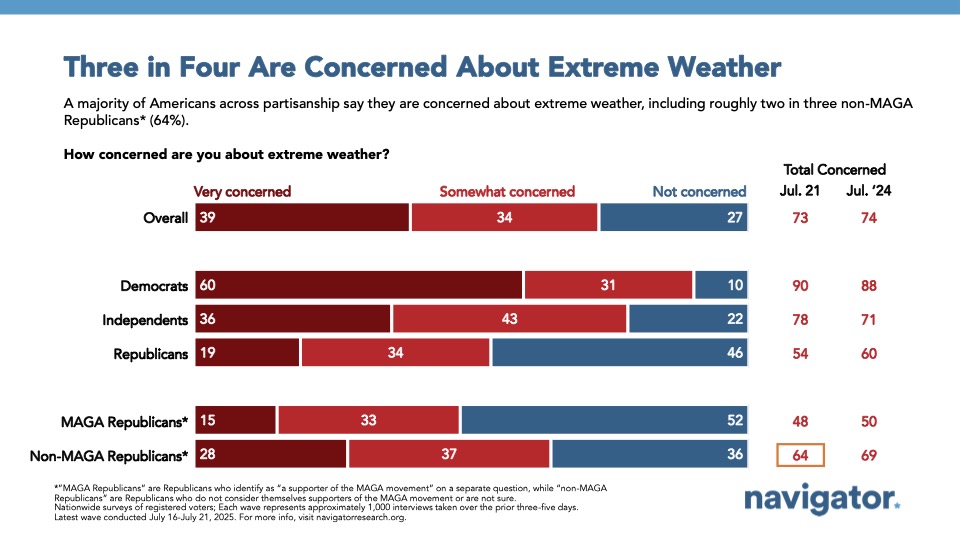
Only 27 percent trust Trump and Republicans to handle climate change and the environment, while 51 percent trust Democrats.
Americans are split on who they trust to respond to natural disasters. 44 percent place their trust in the Democrats, with 41 percent trusting Trump and Republicans.
Americans are primarily experiencing changing weather through hotter temperatures (72 percent) and increases in floods (42 percent). With 85 percent of Americans hearing about catastrophic floods in Texas and other states, it’s no surprise that majorities across partisanship are concerned about extreme weather.
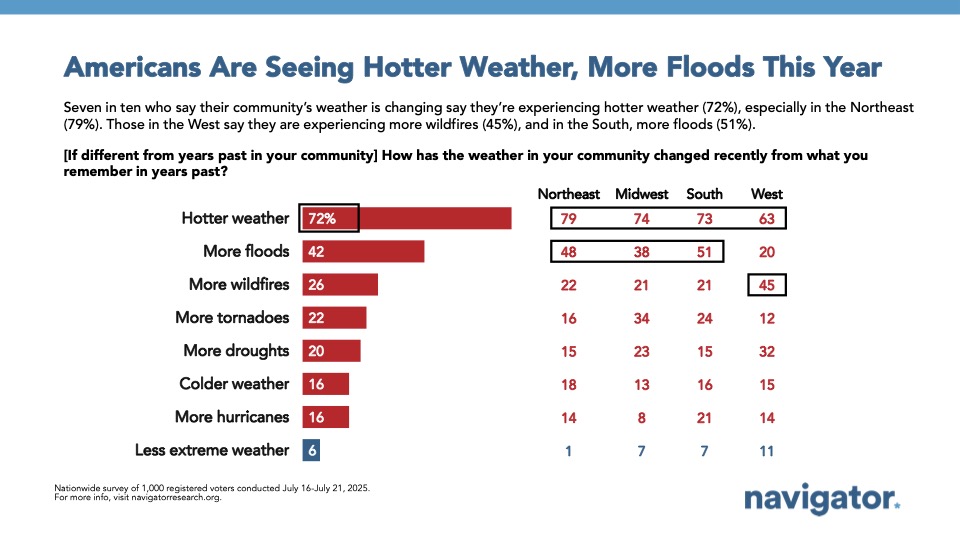
Experiences of intensifying weather differ across regions: In the West, hotter temperatures (63 percent), increased wildfires (51 percent), and increased drought (32 percent) top the list. Midwesterners cite hotter temperatures (74 percent), increased floods (38 percent), and increased tornadoes (34 percent).
Climate change is seen as a serious problem — but intensity varies by party
With extreme weather dominating news cycles throughout 2025, 70 percent of Americans believe climate change is a serious problem today, including most independents (73 percent) and non-MAGA Republicans (63 percent).
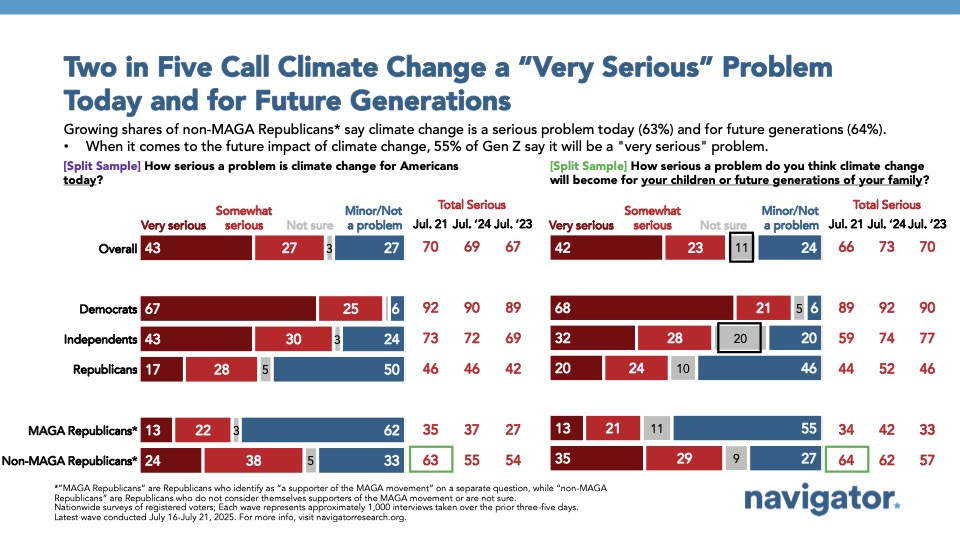
92 percent of Democrats believe climate change is a serious problem (67 percent very serious).
46 percent of Republicans believe climate change is a serious problem, but with a stark divide between MAGA and non-MAGA Republicans. While 34 percent of MAGA Republicans say climate change is a serious problem, 63 percent of non-MAGA Republicans say climate change is a serious problem.
A majority of independents (73 percent) believe climate change is a serious problem today and 43 percent state it’s a very serious
Just under 80 percent of Gen Z cites climate change as a serious problem, with 41 percent stating it’s a very serious problem. Compared to other generations that cite climate change as a serious problem, Gen Z is 3 points higher than Millennials, 14 points higher than Gen X and 12 points higher than Boomers.
Americans are split on the causes of weather change
A plurality (46 percent) say the weather is changing mostly as a result of human activity, such as the burning of fossil fuels, while 34 percent say the weather is changing mostly as a result of natural patterns.
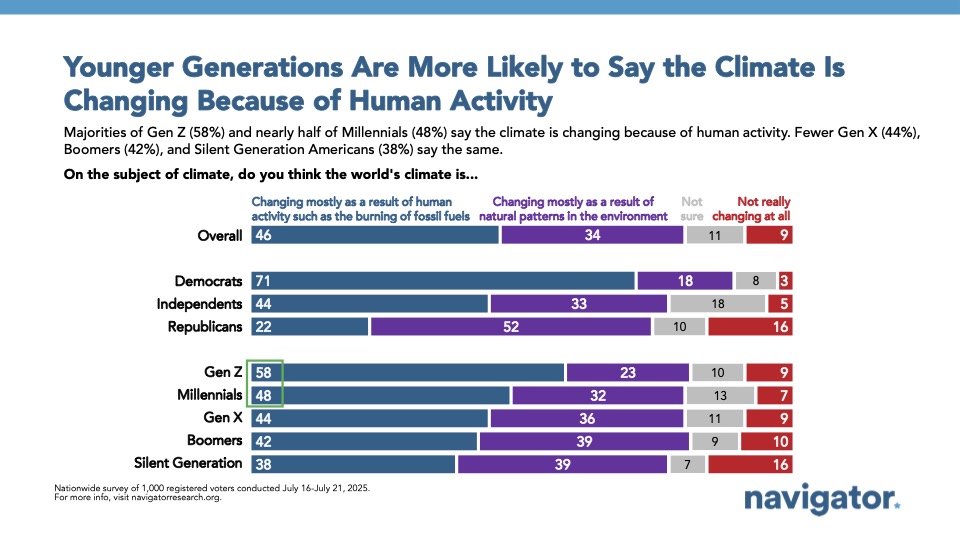
Both MAGA and non-MAGA Republicans are most likely to attribute changing weather to natural patterns (52 percent), with 16 percent stating the weather is not changing at all.
44 percent of independents say the weather is changing as a result of human activity, while 33 percent attribute changing weather to natural patterns.
Bipartisan support for emergency weather services
Despite the Trump administration recently cutting funding to agencies responsible for weather reporting and disaster response, these agencies remain popular with the public.
- 77 percent of Americans are favorable to the National Weather Service.
- 61 percent of Americans are favorable to the Federal Emergency Management Agency.
- 50 percent of Americans are favorable to the National Oceanic and Atmospheric Administration.
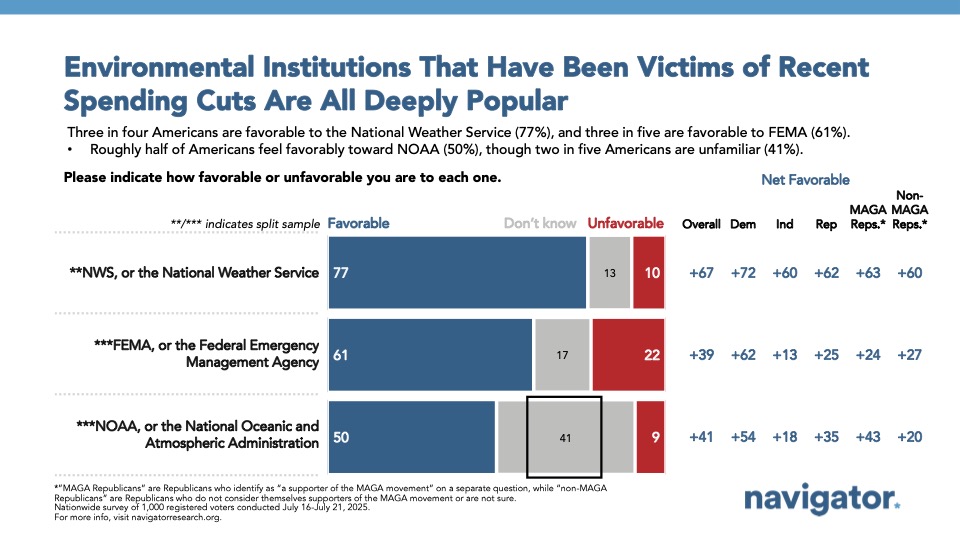
In the Midwest, an area particularly devastated by floods and tornadoes, 68 percent express favorability for FEMA.
A plurality (46 percent) of Americans believe that cuts made to these institutions undercut emergency preparedness and have made extreme weather disasters worse. The results are largely partisan: 74 percent of Democrats say Trump’s cuts are to blame, while 64 percent of Republicans say the agency cuts have no connection to extreme weather. Independents are divided, with 28 percent unsure.
